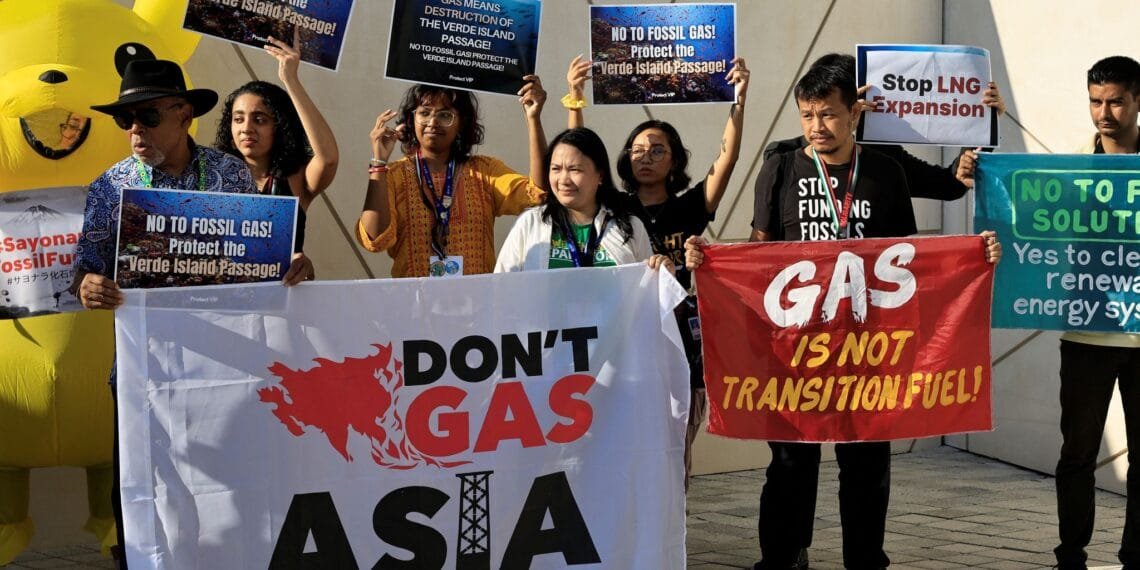As the 28th edition of Conference of the Parties (COP28) ended in Dubai, United Arab Emirates (UAE) recently, climate activists have insisted that fossil fuel lobbyists and petrostates, who dominated the negotiations, might have prevailed at the conference, as they remain bent on continuing the extraction of fossil fuels, especially in Africa.
Speaking at the Nigerian Resource Justice Conference 2023, they argued that COP28 has three significant accomplishments, but around each are bubbles of uncertainties and loopholes, saying continued extraction of fossil fuels will worsen the climate crisis globally.
Director of Health of Mother Earth Foundation, Reverend Nnimmo Bassey, who presented a paper titled: COP28 and the Quest for Climate Justice, stated that the three highlights are the adoption of Loss and Damage Fund mechanism, the agreement to triple renewables capacity and double energy efficiency by 2030 and the agreement to transition from fossil fuels in energy.
At a post-COP28 conference organised by the Social Action in collaboration with the Corporate Accountability and Public Participation Africa (CAPPA) on Monday, December 18, 2023 in Abuja, Bassey said: “In all, the real winners are the army of fossil fuels lobbyists and the petrostates.
“After kicking and screening for decades, the COP finally agreed to acknowledge that burning of fossil fuels must end. The phrase of transitioning from fossil fuels for energy was so carefully crafted that it leaves an ocean-wide space for the fossil fuel industries to keep on prospecting for and extracting the resources.
“The restriction of the open-ended transition to renewable energy gives the industry the space to keep drilling for production of plastics, petrochemicals and diverse products. In other words, that celebrated clause gives a lifeline for the petroleum civilization to trudge on.”
Bassey, who spoke in the midst of other climate activists, maintained that African negotiators went to the COP loaded with the outcome of its recently held African Climate Summit, adding that among the key outcomes was the need for the continent to demand sufficient finance for the needed energy transition and operationalisation of the Loss and Damage Fund.
“African politicians see the continent as having limitless land and resources, including the so-called green or critical minerals, ripe for exploitation in exchange for cash. The leaders resolved to aim for green development and green industrialization.
“They also agreed to develop green hydrogen and its derivatives. To a large extent, the highlights of the document may not have influenced the official negations as much as it did bilateral and directional deals,” he said.
Read Also: Imo: Oil communities task gas company on completion of abandoned rural roads
He also argued that the push by the Organisation of Petroleum Exporting Countries (OPEC) that its members should not accept fossil fuels phase out and probably, no mention of fossil at all sat well with African negotiators, including Nigeria.
“With new oil and gas fields opening up in many areas-including world heritage areas in Saloum Delta, Senegal and Okavango in Namibia; with drilling and pipelines trashing protected forests in Uganda; flashpoints in Cabo Delgado, Mozambique-the mantra is that Africa must use its fossil fuels resources.
“On this, Africa’s politicians scored a point when the COP document stated that the transition from fossil fuels must not only be fast, but also fair. This suggests that the transition will move on different gears in different regions.
“Nevertheless, the point is that the fossil fuels industry has been put on notice. The days of fossil fuels are numbered. Rather than talk of decarbonising, the world will soon be talking of depetrolising. Within the coming decades, the global north will halt the production of internal combustion engines and, sadly, Africa will become the cemetery for such automobiles,” Bassey added.
Speaking further, he said another point is that over 85 percent of the installed infrastructure in Africa are for exports, which clearly shows that they are not being extracted to meet the energy needs of the continent and its peoples.
He maintained that the need to rein in fossil fuel extraction and burning goes beyond the climate question, adding that from extraction to processing and burning, fossil fuels cause havoc on people and the Planet.
The foremost environmental activist lamented that the oil fields in most parts of the world are veritable crime scenes and that millions of old wells have been abandoned around the world and remain a ticking time bomb that could blow up and cause major spills at any time.
“Mining of so-called critical or green minerals is wrecking communities and biodiversity in Africa, Latin America and elsewhere. These have happened irrespective of whether the material is dirty or green.
“Lack of respect for people living in the territories where these resources are extracted routinely lead to lack of consultation with the people, lack of interest in their consent and lack of care for the people.
“It is time to reach a consensus on the Rights of Nature to maintain her regenerative cycles without disruptions by humans. Indeed, the climate crisis is tied to our irresponsible relationship with Mother Earth,” he concluded.






